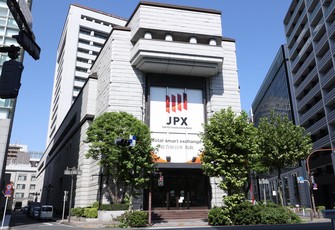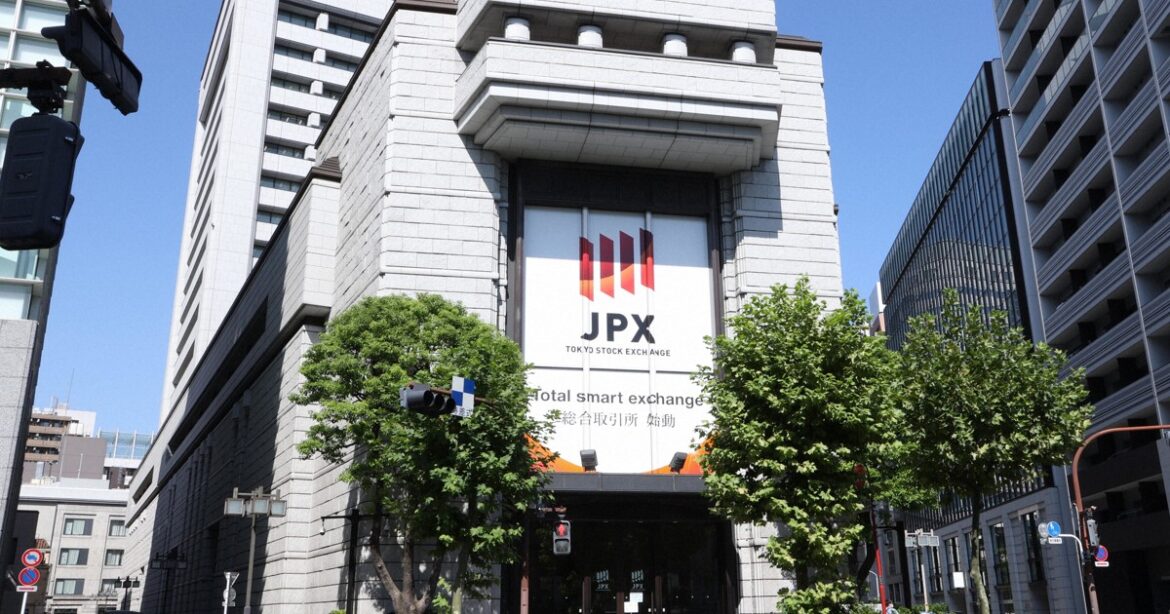
This file photo shows the Tokyo Stock Exchange on Oct. 2, 2020. (Mainichi)
TOKYO (Kyodo) — Tokyo stocks dropped Monday, hit by concern over heightened Middle East tensions and surging oil prices after the United States attacked Iranian nuclear facilities, though a weakening yen helped trim some losses.
The 225-issue Nikkei Stock Average ended down 49.14 points, or 0.13 percent, from Friday at 38,354.09. The broader Topix index finished 10.08 points, or 0.36 percent, lower at 2,761.18.
On the top-tier Prime Market, decliners were led by electric power and gas, nonferrous metal and iron and steel issues.
The U.S. dollar rose sharply to a one-month high in the lower 147 yen range in Tokyo as heightened tensions in the Middle East prompted investors to seek the currency, seen as a safe haven in times of emergency, dealers said.
At 5 p.m., the dollar fetched 147.32-34 yen compared with 146.00-10 yen in New York and 145.40-42 yen in Tokyo at 5 p.m. Friday.
The euro was quoted at $1.1498-1499 and 169.39-43 yen against $1.1517-1527 and 168.22-32 yen in New York and $1.1516-1517 and 167.45-49 yen in Tokyo late Friday afternoon.
The yield on the benchmark 10-year Japanese government bond ended at 1.405 percent, up 0.010 percentage point from Friday’s close, as the debt was sold on the back of the Finance Ministry saying Friday that it has reviewed its planned issuance of bonds through March 2026.
Selling was also spurred as speculation grew that the Bank of Japan will hike its policy interest rate earlier than anticipated due to a rise in crude oil futures triggered by the situation in the Middle East.
Stocks dropped after the U.S. airstrikes on Iran over the weekend fueled fears of higher crude oil prices hurting the Japanese economy as Tehran may take retaliatory steps and close the Strait of Hormuz, a key waterway for oil transportation, brokers said.
The benchmark West Texas Intermediate crude surged about 5 percent from late last week to hit the $78 level per barrel, around a five-month high, in after-hours trading in New York on Sunday.
Many investors were nervous and took a wait-and-see stance as Iran has yet to clearly respond to the U.S. attack, brokers said.
“If the Strait of Hormuz is closed, the Asian economy will be negatively affected by rising oil prices, possibly leading to lower Japanese stocks,” said Masahiro Yamaguchi, head of investment research at SMBC Trust Bank.
Heavyweight semiconductor-related issues also drew selling following a report Friday that the U.S. administration told major chipmakers it is considering revoking waivers that allow them to send chipmaking technology to China.
Losses were latter trimmed by the buying of some export-linked machinery issues on a weaker yen, which increases exporters’ overseas profits when repatriated.


AloJapan.com